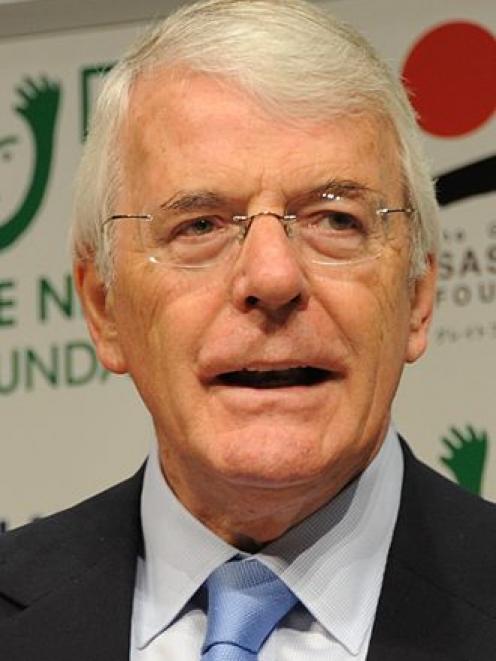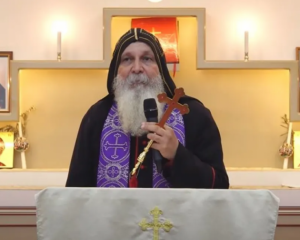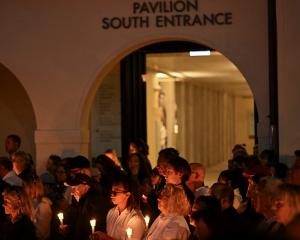
Speaking in Solihull, central England, former Conservative leader Major described such an arrangement as "a recipe for mayhem" that threatened the integrity of the United Kingdom.
"Let me not mince my words," said Major. "The SNP is a real and present danger to our future. They will pit Scotland against England. That could be disastrous to the people of Scotland -- and fatal to the UK as a whole."
Scots voted by 55-45 percent to remain part of the UK in a referendum last September, but the Scottish National Party (SNP) has since enjoyed a spectacular renaissance.
Polls suggest it will sweep nearly all Scotland's seats in the Westminster parliament, largely at the expense of the main opposition Labour Party, becoming the third-largest party overall after next month's election.
Espousing left-wing policies, the SNP has said it will help Labour lock Conservative Prime Minister David Cameron out of power in return for concessions such as higher public spending. Centre-left Labour has ruled out a formal coalition with the SNP, but left the door open to a looser pact.
The warning by Major, who Britons remember for his understated style and centrist political stance, was the starkest yet by any Conservative on the nationalist threat.
His party is struggling to establish a lead in opinion polls less than three weeks before an election that no single party is on track to win outright.
Nicola Sturgeon, the SNP's leader, reacted angrily to Major's intervention, saying it was a sign of the growing desperation of the Conservatives.
"His comments are silly, they're over the top but more seriously they're actually a bit of an affront to democracy," Sturgeon told Sky News.
Cameron's party had been banking on a steady economic recovery to hand it victory but opinion polls have put the two main parties neck-and-neck for months and the Conservatives have been criticised for the negative tone of their campaign.
Using Major to send a message directed at English voters in particular is an attempt to broaden the party's appeal.
Labour portrays Cameron, who enjoyed a privileged upbringing, as the leader of a party of the rich, whereas Major's roots are far humbler. He was also the last Conservative leader to win an overall majority at Westminster, in 1992.
'A RECIPE FOR MAYHEM'
Standing in front of a banner portraying the red, white and blue British flag, Major said a Labour-SNP deal would foster instability because the SNP could bring down the government "at any time" if it didn't get what it wanted.
"This is a recipe for mayhem," said Major. "At the very moment our country needs a strong and stable Government, we risk a weak and unstable one -- pushed to the Left by its allies, and open to a daily dose of political blackmail."
Major said the SNP would use a pact with Labour to stoke support for a second independence referendum which he said they would seek to hold after elections for the devolved Scottish parliament in May 2016.
Labour leader Ed Miliband accused Cameron on Tuesday of demeaning himself by allowing his party to raise the SNP threat.
"It says something about his campaign, because his has become a campaign where he will say anything and stop at nothing," said Miliband.
Major's speech also divided opinion inside Cameron's party, with some concerned that talking up the SNP's prospects to court voters risked fuelling English nationalism and breaking a broader cross-party coalition against the SNP.
Michael Forsyth, a Conservative peer and former Scottish minister, told the Guardian newspaper he was worried playing the Scottish nationalist card was "short-term and dangerous."
Major brushed off such criticism as "nonsense", saying he had a duty to point out the dangers the country was facing.
"The nightmare of a broken United Kingdom has not gone away," said Major. "The separation debate is not over." (Additional reporting by William James and Stephen Addison in London; Writing by Andrew Osborn; Editing by Guy Faulconbridge and Catherine Evans)












